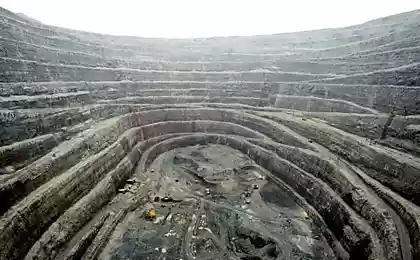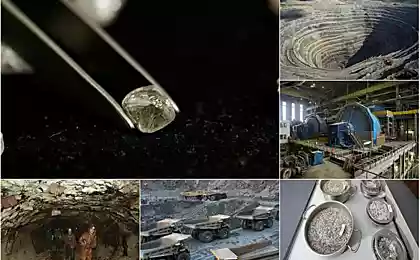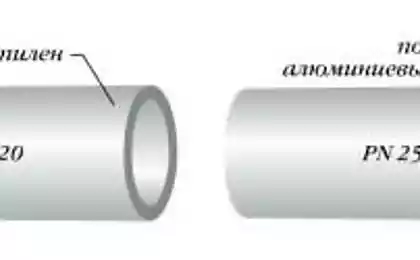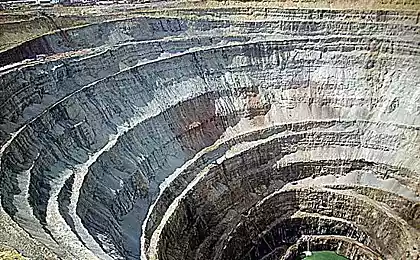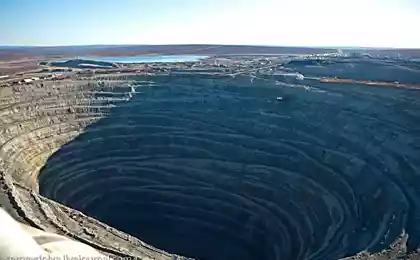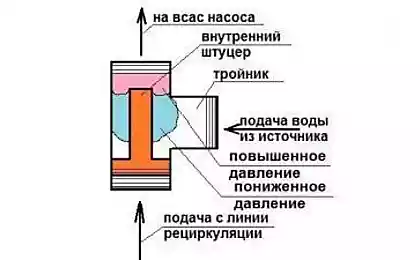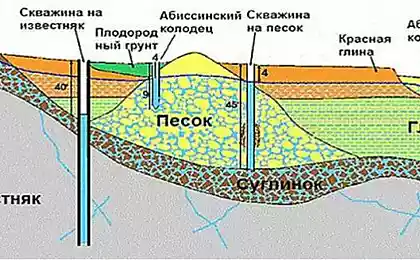239
Ekati Diamond Mine in Canada
The Ekati Diamond Mine is located 200 km south of the Arctic Circle, near Lac de Grass in the Northwest Territories of Canada, about 300 km northeast of Yellowknife. Ikati is a local word meaning “fat lake”. The name of the place is attributed to white deposits of quartz rock throughout the area, which are similar in consistency to the fat of a reindeer.
Ekati is both a surface and underground diamond mine in Canada. It is a joint venture between BHP Billiton Diamonds (80%) and geologist Charles Fipk and Dr. Stuart Blasson.
The first kimberlite pipe was found by Chuck Phipk and Stuart Blasson in the Lac de Grass region in 1985, after nearly a decade of research and exploration. Kimberlite is a soft igneous rock located in long, vertical volcanic tubes that sometimes contain diamonds. There are less than 10,000 kimberlite pipes in the world, few of which contain diamonds. Ekati has 156 known kimberlite pipes, at least six of which contain diamonds. The pipes in Ikati are 45 to 62 million years old, and most of them lie under shallow lakes formed from the melting of glaciers 8,000 to 10,000 years ago.
Lake Point, where the first kimberlite was discovered, was initially considered unpromising, but its discovery allowed to find one of the largest diamond deposits in mining history. The deposits cover most of the area between Yellowknife and the Arctic coast. Ekati officially began operations on October 14, 1998 and was operated by BHP Billiton Canada Inc. The mine is estimated to be able to supply diamonds for 25 years.
Source: lifeglobe.net/
Ekati is both a surface and underground diamond mine in Canada. It is a joint venture between BHP Billiton Diamonds (80%) and geologist Charles Fipk and Dr. Stuart Blasson.
The first kimberlite pipe was found by Chuck Phipk and Stuart Blasson in the Lac de Grass region in 1985, after nearly a decade of research and exploration. Kimberlite is a soft igneous rock located in long, vertical volcanic tubes that sometimes contain diamonds. There are less than 10,000 kimberlite pipes in the world, few of which contain diamonds. Ekati has 156 known kimberlite pipes, at least six of which contain diamonds. The pipes in Ikati are 45 to 62 million years old, and most of them lie under shallow lakes formed from the melting of glaciers 8,000 to 10,000 years ago.
Lake Point, where the first kimberlite was discovered, was initially considered unpromising, but its discovery allowed to find one of the largest diamond deposits in mining history. The deposits cover most of the area between Yellowknife and the Arctic coast. Ekati officially began operations on October 14, 1998 and was operated by BHP Billiton Canada Inc. The mine is estimated to be able to supply diamonds for 25 years.
Source: lifeglobe.net/

